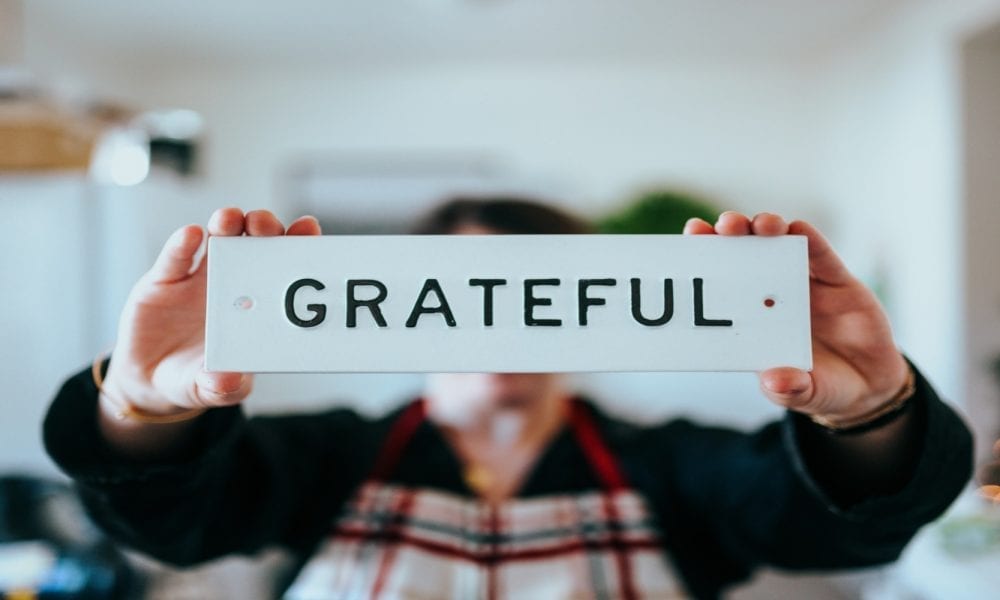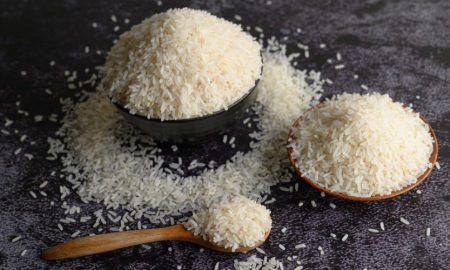
Five Ways the Feelings of Gratitude Can Actually Improve Mental Health!

 The practice of gratitude is simple, but very few people embrace it in their everyday life. Besides having the feeling of gratitude, it is also important to express it. It can have major benefits for both your physical and mental well-being.
The practice of gratitude is simple, but very few people embrace it in their everyday life. Besides having the feeling of gratitude, it is also important to express it. It can have major benefits for both your physical and mental well-being.
Gratitude can also improve your relationships and boost your self-esteem. Here are five ways that gratitude can improve your mental health. So, if you haven’t started with it now, try it, express gratitude for the good things in life. A simple practice of expressing gratitude at night can truly work wonders to even your quality of sleep.
It Can Boost Your Physical Health
Gratitude goes a long way in improving your health because it enables you to take care of your body and maintain healthy habits. For instance, gratitude can also help you sleep better. A study from 2009 found that people who expressed their grateful thoughts right before hitting the bed fell much better. They even slept longer, and were not assailed by fatigue feelings during the day.
This is because you can feel calmer when you practice gratitude and even help lower your heart rate. Sleeping more boosts the immune system, helps reduce stress levels, and can cut down the risk of heart ailments. Include a calming practice, just before you go to sleep. A calming feeling stemming from the expression of gratitude can even help lower your blood sugar levels. A 2017 study proves that the feeling of gratitude reduced the (HbA1c) three-monthly average of the participant’s blood sugar.
Gratitude Improves Empathy
 Feeling grateful can also improve empathy toward others, possibly because you look at people with more positivity. A study from 2020 proved that medical students who express gratitude harbor more empathetic feelings. Researchers proved that this happens when you notice more people doing good to others.
Feeling grateful can also improve empathy toward others, possibly because you look at people with more positivity. A study from 2020 proved that medical students who express gratitude harbor more empathetic feelings. Researchers proved that this happens when you notice more people doing good to others.
This improves the propensity to help others. Empathy forms a strong forging bond with other people and helps maintain healthy relationships. When you have a healthy relationship, you also fare better when it comes to your mental health.
Gratitude Makes You Happier
 Practicing gratitude makes you happier as you start noticing the good things in your life. It may promote happiness by thinking beyond the present situation. Studies also show that you feel happier when you remember things, and when you feel happier, you feel hopeful.
Practicing gratitude makes you happier as you start noticing the good things in your life. It may promote happiness by thinking beyond the present situation. Studies also show that you feel happier when you remember things, and when you feel happier, you feel hopeful.
And this gives you a feeling of this too shall pass, and you can overcome current obstacles. Gratitude also eliminates the feeling of negative feelings. When people are in a happier state of mind, there are also lesser chances of the negative feelings crowding your mind, including depression and anxiety.
Gratitude Boosts the Feeling of Self-Esteem
 Research substantiates that grateful people also have higher self-esteem. This happens when people notice the way people react to you, you start feeling good about yourself, and invariably your self-worth improves or increases. Gratitude can also help the way you judge yourself.
Research substantiates that grateful people also have higher self-esteem. This happens when people notice the way people react to you, you start feeling good about yourself, and invariably your self-worth improves or increases. Gratitude can also help the way you judge yourself.
When you are grateful and happy, you may have a lesser inclination to compare yourself with other people. It’s important to build self-esteem. It’s only when you build self-esteem that you battle your life’s troughs better, such as feelings of depression and anxiety, and relationship troubles.
Gratitude Improves Relationships
Negativity breeds negativity, and similarly, positivity breeds positivity. When you are anxious, you are entrapped in that vortex of thoughts and feel no escape from those feelings. Gratitude helps come out of the negative chain of thoughts, even when expressing gratitude to your partner.
When you are grateful and keep expressing your gratitude and appreciate each other’s finer points, it can lead to many important conversations that ultimately boost your bond. Expressing gratitude can also open pathways to new relationships or friendships. When you are grateful, you are much more receptive to new relationships, new conversations, and new thought processes.
Now, that you know how incredible gratitude is as a tool, it is important to start using it as a mental care tool. You can even maintain a gratitude journal to pen down all the good things you experienced in the day you are grateful for.
Sometimes, you may not want to pen down your innermost thoughts. It’s okay. It is a process. Start by just remembering all the good things that happened in your day and smile deep. ‘Smile with your liver.’ That’s a line we stole from the film, Eat Pray Love. When you start smiling through your liver, miracles start happening!
More in Mental Health
-
`
6 of the Richest Female Rappers in the World
Who is the richest female rapper in 2024? Well, the hip-hop world has seen a surge in powerful female voices who...
July 29, 2024 -
`
Does Insurance Cover Physical Therapy?
When it comes to physical therapy, a common question arises: Do you use health insurance for physical therapy? Well, navigating the...
July 25, 2024 -
`
Does Coughing Work Your Abs? Here’s All You Ought to Know
When it comes to unexpected ways to engage your core, you might find yourself asking: Does coughing work your abs? The...
July 19, 2024 -
`
How to Prepare Rice Water for Weight Loss – Benefits and Uses
Rice water isn’t just a staple in traditional remedies—it’s a powerhouse of benefits for health and beauty. From treating diarrhea to...
July 12, 2024 -
`
Amanda Bynes Pregnant at 13? Debunking the Rumors
In recent years, the internet has been ablaze with rumors surrounding former child star Amanda Bynes, particularly regarding allegations of a...
July 1, 2024 -
`
Can Baking Soda Clean Your Lungs?
Years of inhaling cigarette smoke, pollution, and other toxins can leave you longing for a way to cleanse your lungs. The...
June 27, 2024 -
`
How to Build Muscle Mass After 60? 5 Proven Strategies
Curious about how to build muscle mass after 60? You are not alone. And the good news is that it is...
June 20, 2024 -
`
Prediabetic Foods That Can Lower Your Blood Sugar in 2024
Prediabetes is a health condition characterized by blood sugar levels that are higher than normal but not high enough to be...
June 13, 2024 -
`
Kelly Clarkson’s Weight Loss Journey | Here Are the Details
Kelly Clarkson’s weight loss has been a hot topic among fans and media alike. The iconic American singer and host of...
June 3, 2024















You must be logged in to post a comment Login